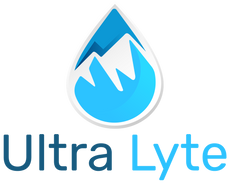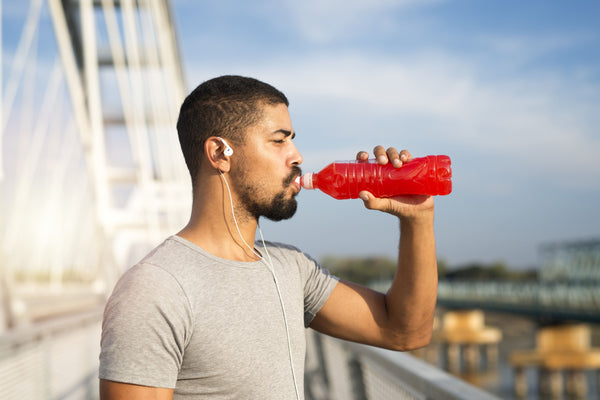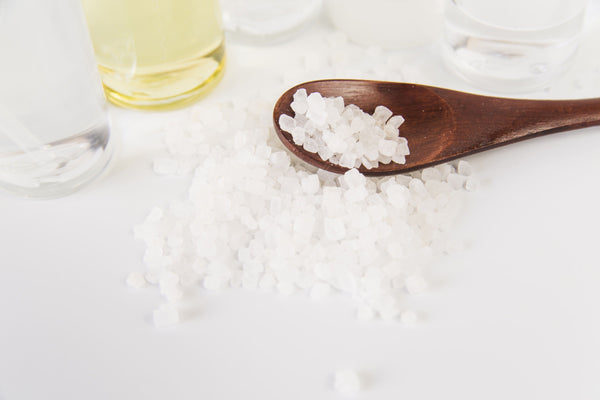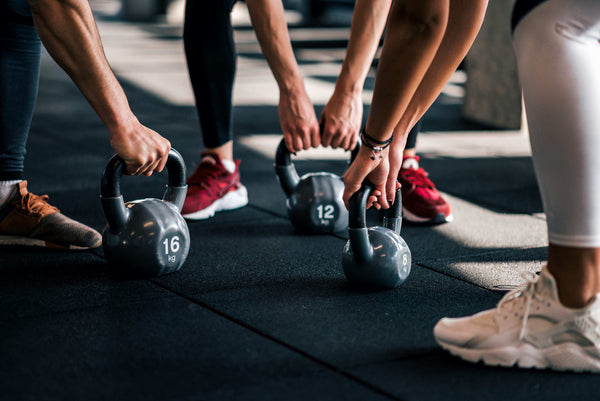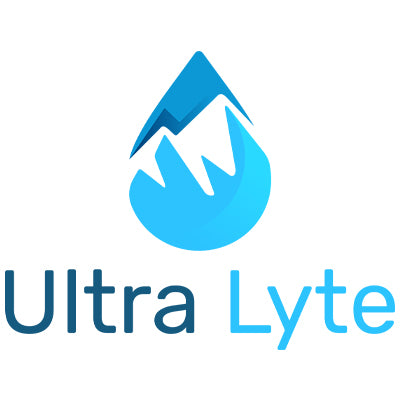
Electrolytes and Strength Training – How Do They Affect Your Performance?

Electrolytes are most commonly associated with runners, endurance athletes, and those training in hot conditions. However, they play an equally important role in strength training. Did you know that even mild electrolyte imbalances can lead to muscle weakness, cramps, decreased strength, and reduced performance?
Find out why electrolytes are essential for building muscle mass, supporting recovery, and boosting strength, what roles they play, and how to replenish them effectively.
What Are Electrolytes and How Do They Work in an Athlete’s Body?
Electrolytes are electrically charged minerals that dissolve in body fluids and enable a wide range of biological processes – from nerve conduction to hydration regulation and muscle contraction.
The main electrolytes include:
- Sodium (Na⁺) – crucial for cellular hydration and maintaining blood volume,
- Potassium (K⁺) – essential for muscle function and preventing cramps,
- Magnesium (Mg²⁺) – involved in ATP synthesis and enzymatic function,
- Calcium (Ca²⁺) – regulates muscle contraction and nerve conduction,
- Chloride (Cl⁻) – helps maintain acid-base balance.
In the context of strength training, each of these plays a specific role in supporting power, endurance, and recovery.
Electrolytes, Muscle Cramps, and Strength Endurance
During intense physical effort, you sweat more, leading to the loss of water and electrolytes – primarily sodium, potassium, and chloride. When their levels drop, muscle cells can’t function properly, which results in:
-
decreased power and muscle strength,
-
painful cramps,
-
slower reaction time,
-
reduced neuromuscular control.
Research shows that potassium and magnesium deficiencies may impair muscle contraction, while calcium deficiency can lead to muscle excitability and tremors.
Sodium and Potassium’s Role in Muscle Tone
Sodium and potassium work together in the so-called sodium-potassium pump, which is responsible for nerve impulse transmission and maintaining muscle tone. This allows your muscles to react quickly and effectively to stimuli during exercises – such as a squat or deadlift.
Low sodium levels may lead to hyponatremia, which causes weakness, confusion, and loss of strength. Meanwhile, potassium deficiency disrupts muscle cell function, affecting both maximum strength and endurance capacity.
Magnesium – The Unsung Hero of Strength Training
Magnesium is essential for:
-
ATP production (the primary energy source for muscles),
-
activation of hundreds of metabolic enzymes,
-
maintaining the calcium-potassium balance.
A lack of magnesium can cause neuromuscular dysfunction, cramps, increased muscle soreness post-workout, and delayed recovery. Importantly, magnesium is depleted through both stress and intense exercise, so supplementation may be critical for strength-focused athletes.
Calcium – Not Just for Bones, but Also for Strength
Though calcium is best known for bone health, it also plays a key role in muscle contraction. It enables neurotransmitter release at neuromuscular junctions and initiates contraction by interacting with actin and myosin proteins.
Low calcium levels can impair signal transmission between nerves and muscles and reduce the ability to generate maximum force – directly affecting the quality of your strength workouts.
Do Electrolytes Support Recovery After Strength Training?
Yes – and in several ways. After heavy lifting sessions:
-
your body loses fluids and electrolytes,
-
demand increases for minerals needed to repair cells,
-
your nervous system is under strain.
Replenishing electrolytes after a workout helps:
-
restore fluid and electrolyte balance faster,
-
reduce the risk of painful cramps,
-
support muscle recovery,
-
bring the nervous system back into balance.
A study published in the Journal of the International Society of Sports Nutrition found that electrolytes accelerate post-workout recovery and may enhance the body's adaptive response to training.
When Should You Consider Electrolytes During Strength Training?
While strength training doesn't usually cause as much sweat loss as endurance sports, there are situations where electrolyte supplementation can significantly improve performance. Consider using them if you:
-
train in warm environments or use a sauna,
-
perform long and intense strength workouts,
-
are prone to muscle cramps,
-
drink large amounts of plain water without electrolytes,
-
follow a low-carb or ketogenic diet,
-
feel fatigued despite proper sleep and nutrition.
Best Ways to Replenish Electrolytes After Strength Training
1. Electrolyte drinks or capsules – fast absorption and precise doses.
2. Natural foods – bananas (potassium), coconut water (potassium, magnesium), yogurt (calcium), broths (sodium).
3. Avoid sugary drinks – many sports drinks contain little electrolytes and lots of sugar, which can hinder recovery.
4. Choose the right forms – for example, magnesium citrate is more bioavailable than magnesium oxide.
Sources:
1. Boron WF, Boulpaep EL. (2016). Medical Physiology, 3rd ed. Elsevier.
2. Sawka MN, et al. (2007). American College of Sports Medicine position stand. Exercise and fluid replacement. Med Sci Sports Exerc.
3. Nielsen FH, Lukaski HC. (2006). Update on the relationship between magnesium and exercise.
4. Costill DL, et al. (1985). Fluid replacement during exercise. Med Sci Sports Exerc.
5. Brini M, et al. (2013). Calcium signalling in health and disease. Biochim Biophys Acta.
6. Brouns F, Kovacs EM. (1997). Functional drinks for athletes. Clin Sports Med.
